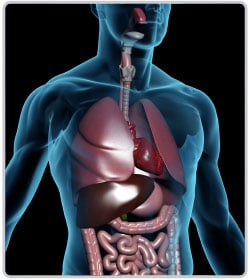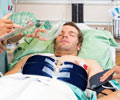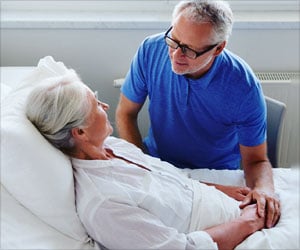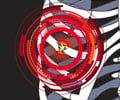Frequently Asked Questions
1. Which doctor should I consult if I am suffering from pneumonia?You can consult a General Physician or your family physician.
2. Is pneumonia a viral or bacterial infection?
Both viruses and bacteria can cause pneumonia. In some cases, bacteria cause pneumonia as a secondary infection.
3. What percentage of pneumonia is caused by viruses?
50% are caused by viruses and are less severe than bacteria. Symptoms are milder than bacterial pneumonia like cold, dry cough, headache, fever and weakness.
4. Is there a vaccine to protect from pneumonia?
Yes. The Influenza vaccine and vaccines against Pneumococcus pneumoniae and Haemophilus influenzae type b (Hib) can protect against pneumonia.
5. Can I continue to smoke if I have pneumonia?
It is advisable to stop smoking since it will further irritate the already swollen and inflamed lung tissue and the tracheo-bronchial tree.
6. Does pneumonia affect the respiratory system?
Germs causing pneumonia invade the air sacs of the lungs or alveoli causing inflammation and filled with fluid. This causes less oxygen to reach the blood. Breathing becomes labored.
7. How serious is pneumonia?
The severity of pneumonia depends on a person’s general health, age and how strong is their immune system. It is also less serious when it is caused by a virus.
Pneumonia can be deadly in infants less than 2 years and elders more than 65 years. It can also be fatal in persons with weakened immune systems.
8. Is pneumonia contagious?
Yes it is. It can spread by inhaling the small airborne particles present in the air when someone near you has coughed or sneezed.
9. How long does it take to recover from pneumonia?
Most healthy people would recover in one to three weeks. Seniors and immunocompromised people might take several weeks depending on their general health.
10. Is pneumonia is curable?
Yes, it is curable. For pneumonia caused by a virus, rest, pain killers and drinking plenty of warm fluids help. For pneumonia caused by bacteria, antibiotic treatments should be completed for full recovery.
11. How is pneumonia diagnosed in babies?
Babies have symptoms of fever, chills, irregular breathing, loss of appetite and tummy ache.
Pink eye with mild fever may be a symptom in babies who get pneumonia due to chlamydia.
Sometimes they might have long coughing spells and the body will be cyanosed or blue from lack of air when pneumonia is caused due to whooping cough.
12. How many cases of pneumonia are there per year?
There are around 120 million episodes of pneumonia per year in children under 5
13. How do I keep my lungs healthy?
By practising good health habits including good oral hygiene and hand washing. Avoiding populated and polluted places.
14. What is “walking pneumonia”?
Walking pneumonia is a milder case of the disease caused by a mild bacteria or a virus. Symptoms are mild and we can fight of the infection without any antibiotics. This is sometimes caused by an atypical bacterium called Mycoplasma pneumoniae.
15. Why is it important to complete your course of antibiotics for bacterial pneumonia?
In order to make sure that the infection will not recur and to prevent the increase of antibiotic-resistant bacteria.
16. What happens to a bacterial pneumonia if untreated?
An untreated bacterial pneumonia can cause a blood infection or an abscess in your lung
17. When do you get help for pneumonia or may require hospitalization?
When there is fever with shaking chills, a cough that causes you to spit up blood or rust-colored mucus.
If you suffer from shortness of breath and rapid breathing with wheezing, you are advised to visit a hospital casualty for possible admission.
If you suffer from asthma or have any co-morbid conditions that weaken your immunity, you should seek help at the earliest and get hospitalized if required.
















